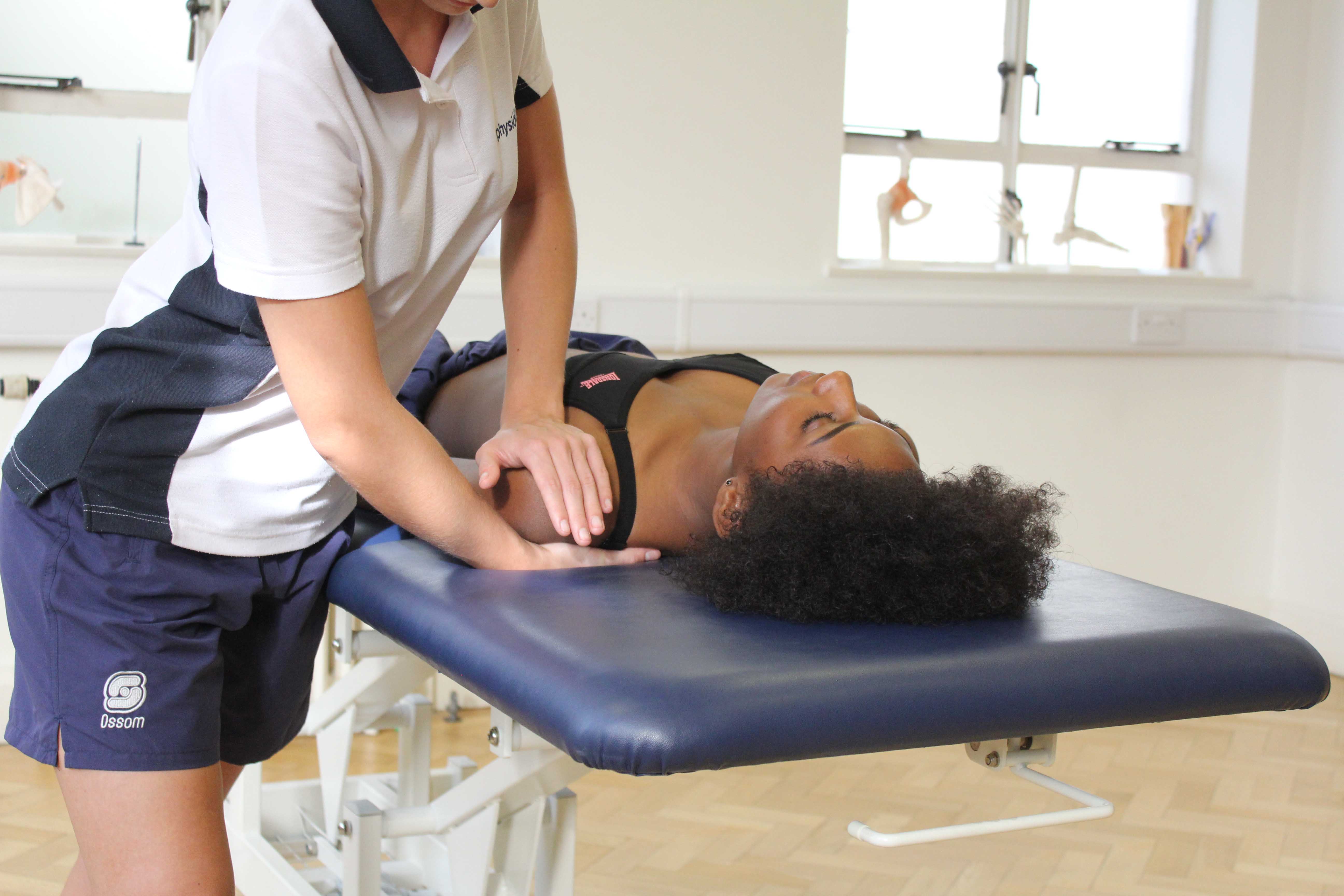What is a frozen shoulder?
The term frozen shoulder (or adhesive capsulitis) refers to inflammation and scarring of the ligamentous capsule of the shoulder joint. Physiotherapy can successfully minimise the symptoms of a frozen shoulder.
 Above: Anterior to posterior mobilisations of the glenohumeral joint to relieve pain and stiffness
Above: Anterior to posterior mobilisations of the glenohumeral joint to relieve pain and stiffnessHow does a frozen shoulder happen?
The exact reason why a frozen shoulder develops is unknown. They tend to occur in the middle-aged or older people and are believed to result from irritation of the shoulder joint and its surrounding capsule. Irritation to the shoulder joint capsule causes an inflammatory response that is referred to as ‘capsulitis’. Associated with the capsulitis is the formation of adhesions, or small scars, between folds of the capsule.
What are the symptoms of a frozen shoulder?
A frozen shoulder causes pain and a loss of movement in the shoulder. The pain may be aching, dull or stabbing, and is usually felt deep in the shoulder and over the outside of the upper arm. The intensity of your pain may vary from day-to-day depending on how much you use your arm. The pain can often interfere with your normal daily activities and can also disturb your sleep. The loss of movement in the shoulder results from the scarring within the joint capsule. These develop gradually causing a progressive loss in the range of movement of the shoulder. Stretching of these adhesions is not bad for you but may aggravate your pain. Additional symptoms of a frozen shoulder include:
What should I do if I have a frozen shoulder?
If you have or suspect you have a frozen shoulder you should seek the assistance of a physiotherapist as soon as possible.
Physiotherapy for a frozen shoulder.
If the diagnosis of frozen shoulder is made, the physiotherapists at Physio.co.uk will be able to provide you with an appropriate treatment programme. This will most commonly be aimed at reducing your pain and improving your shoulder range of movement. It may involve the use of anti-inflammatory medications, electrotherapy treatment, and stretching, strengthening and range of movement exercises. Occasionally, if these measures do not provide relief, referral for an injection into the shoulder joint may be appropriate. Other physiotherapy options include:
What shouldn’t I do if I have a frozen shoulder?
If you have or suspect you have a frozen shoulder you shouldn’t ignore the problem. The longer you leave the condition without treatment, the worse it may become. This may make your pain and restriction in movement worse and prolong your recovery.
Could there be any long-term effects of a frozen shoulder?
A frozen shoulder can sometimes get better on its own. However, this can take up to a year. Treatment markedly reduces this recovery time. Fortunately, once recovery does occur the long-term outlook is good, unless there is an underlying condition affecting the shoulder.
To arrange a physiotherapy assessment call Physio.co.uk on 0330 088 7800 or book online.

 0330 088 7800
0330 088 7800

































